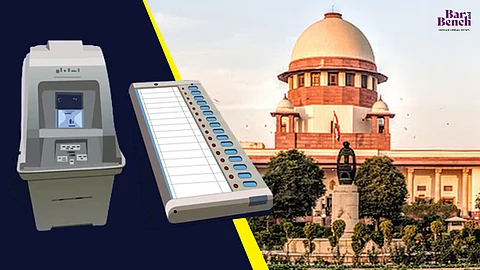
- News
- Columns
- Interviews
- Law Firms
- Apprentice Lawyer
- Legal Jobs
- हिंदी
- ಕನ್ನಡ

The Supreme Court on Monday sought the response of the Union government and the Election Commission of India (ECI) to a plea challenging uncontested elections when there is only one candidate contesting the election [Vidhi Centre for Legal Policy and Union of India and anr].